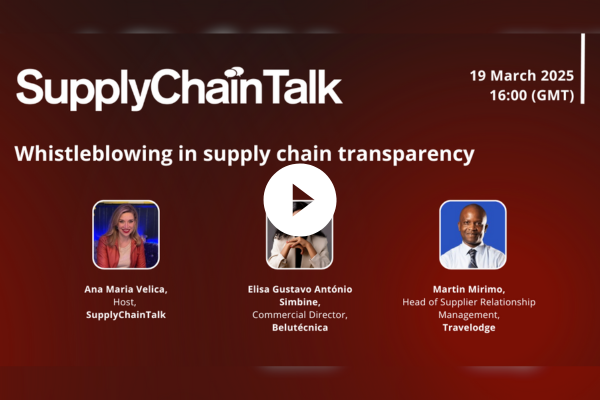Complying with the Corporate Sustainability Reporting Directive

88% of European businesses do not yet feel ready to meet the expectations of the EU’s CSR Directive. Roberto Battistoni at IBM offers advice on compliance
It has now been almost a year since the European Union’s Corporate Sustainability Reporting Directive (CSRD) came into effect; and more recently, the accompanying European Sustainability Reporting Standards, requiring all large firms operating in the EU to meet expanded sustainability disclosures.
Efforts have been made to mandate companies to report only on topics which are relevant to them. However, the first group of companies will already have to report against the CSRD for the 2024 financial year, and it’s becoming increasingly clear that many are still unsure about the scale of the challenge ahead.
Data shows that many companies are struggling with the level of detail demanded by the rules. Baker Tilly research reveals that 88% of European businesses do not yet feel ready to meet the expectations of the CSRD and 57% feel they have little or no knowledge of the new ESG reporting obligations that arise from the CSRD.
That is despite the development of guidelines by the European Financial Reporting Advisory Group (EFRAG). Some are asking if catastrophe could be around the corner and what companies should do to take action before it’s too late.
The directive’s broad scope is the first key challenge. CSRD extends companies’ reporting obligations beyond their own operations to include the sustainability impact of their entire value chain, encompassing suppliers, distributors and customers.
To comply, companies will need to gather and consolidate large volumes of data from supply chain partners - a challenging ask for those with limited exposure to environmental and social practices within their value chain. This may require many firms to rethink their supply chains completely and explains why, for some, the panic is already setting in.
A second complication stems from the regulation’s stipulation that some of the reporting data be based on conclusive scientific evidence. This requirement for targets makes forward-looking reporting particularly hard to address. It will force many firms to invest in complex new solutions, including scenario modelling and analytics.
This brings us on to the skills that will be required to fulfil these complex reporting requirements, as well as drive impact against sustainability targets. Success requires the availability of relevant ESG and sustainability competencies, as well as the ability to manage and interpret complex data.
Given the compressed timescales companies are operating on, there may not be time to bring new people in. Instead, companies may need to look to consultants for support or make do with the capabilities they possess today, mapping skills against requirements and upskilling wherever necessary.
In addition to specialist capabilities, companies will of course require the right tools and technology, allowing them to track and digest complex data, monitor progress and report against a wide range of targets in the short, medium and long-term. To comply with CSRD and the sustainability reporting standards companies must also ensure that any claims relating to ESG metrics and sustainability performance are fully auditable.
A final, fundamental area of uncertainty relates to the consequences of non-compliance – on not one, but two levels. Exactly what does a business risk if it fails to meet the new reporting requirements? The directive states that CSRD non-compliance penalties will be determined by individual EU member states based on relevant state laws.
So, what will happen to business if they don’t meet their sustainability targets and fail to drive impact from CSRD? For some countries such as Germany, fines of up to €10 million can be applied. And in some cases, up to 5% of a company’s annual revenue. Penalties will differ across countries and businesses and depicts yet another area of ’uncertainty’ in implementation of the directive.
With these questions and challenges in mind, we believe that Heads of sustainability, ESG leaders and the C-Suite should prioritise preparations for CSRD in four crucial areas:
1. Skills and decision-making. In addition to building new sustainability skills and practices internally, businesses should assess their audit providers to ensure they have the necessary expertise to provide “finance-grade” assessment of sustainability reporting.
2. Third-party data and ecosystems. By providing guidance on how best to comply, and requesting partners and suppliers prepare the necessary reporting infrastructure, organizations can better source and manage relevant ESG data across the organization and partner ecosystem.
3. Digital technology. CSRD demands multifaceted data. Firms should already be partnering closely with IT departments to identify gaps in data collection and management and invest in specialised enterprise architecture for ESG to deliver solutions that provide robust ESG data suitable for use in reporting and disclosure.
4. Process and business integration. Complying with the CSRD will require a cross-functional team to oversee and manage the reporting process. Considering individuals with expertise in sustainability reporting, data management, IT, legal and communications – as well as ESG – will help ensure a smooth start to the CSRD reporting journey, as well as embedding ESG metrics across functions.
As part of a 2023 sustainability global survey by Verdantix, 38% of the 400 heads of sustainability surveyed said that they did not feel confident in their ability to deliver investor-grade ESG data. The survey also revealed that external collaboration with suppliers and customers is considered one of the most significant challenges firms face.
Bearing in mind that these regulations could set the precedent for sustainability reporting worldwide, it’s imperative that sustainability leaders address the four crucial areas. As the deadline looms for businesses to start reporting against CSRD, the need for clarity has never been more crucial.
Roberto Battistoni is ESG and sustainability data and reporting lead at IBM. The IBM Envizi ESG Suite helps companies capture, manage and analyse large volumes of ESG data and help organisations meet their reporting requirements including CSRD reporting
Main image courtesy of iStockPhoto.com

Business Reporter Team
You may also like
Most Viewed
Winston House, 3rd Floor, Units 306-309, 2-4 Dollis Park, London, N3 1HF
23-29 Hendon Lane, London, N3 1RT
020 8349 4363
© 2025, Lyonsdown Limited. Business Reporter® is a registered trademark of Lyonsdown Ltd. VAT registration number: 830519543





